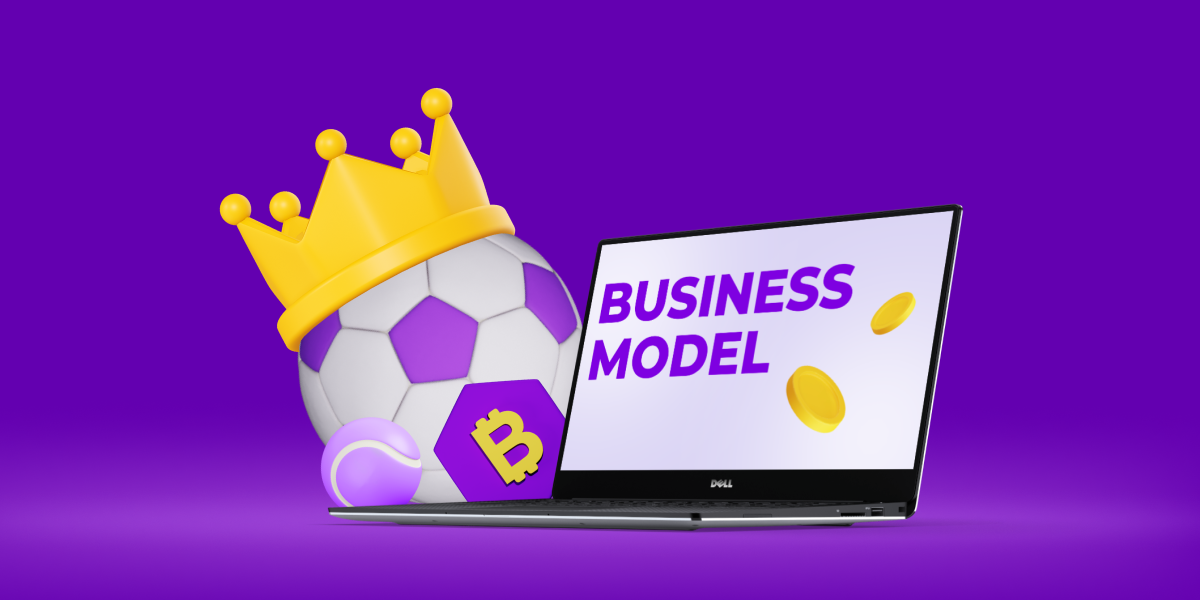Big wins don’t come from wild guesses. They come from knowing exactly how the game works. That’s especially true in sports betting, one of the hottest areas in online entertainment right now. It attracts both casual fans and serious investors. But behind every sportsbook is a business model that needs to be understood before you can succeed. In 2025, with increased demand, regulation, and tech innovation, it's not enough to just have a good idea. You need a clear plan and the right tools. At the center of it all is your iGaming software platform, the engine that powers your operations from odds to payouts.
What Makes the Sports Betting Model Work
The sports betting business model is pretty forthright: operators make money by setting odds that give them a small edge over the players. That edge is called the margin. It's the difference between what players bet and what the operator eventually pays out. Unlike old-school bookies scribbling bets in a notebook, today’s operators use a sportsbook platform to automate everything, from setting odds to managing risk and processing payments.
This system works well when managed smartly, especially with live odds, multiple bet types, and in-play options. The challenge is keeping players happy with fair wins while still making a profit — and not losing their trust. Smart platforms help by handling all the number work instantly, so operators stay in control with every single bet.
Inside a Successful Sportsbook Setup
Running a sportsbook resembles running a finely tuned machine. Each part has to work with the others — because if one piece breaks, the whole system can stall. That’s why every serious sportsbook company has a few foundational components. Let’s walk through them so you know exactly what’s needed to run your operation effortlessly and legally.
The main pieces of a sportsbook setup are as follows:
- Sports Betting Odds Feed. Real-time odds are the lifeblood of your betting engine. You need an odds feed that’s fast, flexible, and covers a multitude of events.
- Player Interface. Players should feel comfortable placing bets on any device. A clean, responsive design keeps them coming back.
- Payments and Wallets. Offering multiple payment gateways builds trust. Offer the possibility to pay with credit cards, crypto, bank transfers — and make sure it all works properly.
- Risk and Fraud Prevention Tools. They scan every bet and flag anything that looks odd, adjusting odds so you’re never caught off guard. That way, your profits stay safe and your sportsbook runs without surprises.
- Legal Framework. Getting an online gambling license gives your service legal standing and builds trust with players and partners.
When everything connects properly, it creates a business that’s fast, secure, and ready to grow. Skip one of these elements, and you’re stuck with problems that could’ve been avoided. For operators who want to build something real — and not gamble on their own success — this setup is absolutely necessary.
What Powers Profit in a Sports Betting Business
When you start an online betting business, one of the first things you need to understand is how profit is built into the system. Sportsbooks don’t rely on luck: they rely on smart margins. This margin, often called the “vig” or “juice,” is a small cut built into every bet. It may seem minor, but over thousands of wagers, it adds up.
Say you’ve got a football betting platform up and running — now it’s time to set odds for the matches coming up. If you price the odds just right, you'll have a built-in edge. The idea is to balance the money on both sides of a bet so you’re never overexposed to risk.
Promotions like free bets are great for getting attention, but they also cut into profits. That’s why sportsbooks need to strike a balance between player retention and long-term earnings. Good software, accurate odds, and smart risk tools all team up to keep your sportsbook making money.
Choosing the Right Sportsbook Business Model
Every operator dreams of a setup that fits their budget, goals, and market. But when it comes to launching a sportsbook, the business model you pick will set the course for everything: your costs, your tools, and how you earn. Prior to choosing the best sports betting software, you need to know what kind of setup you're really after. Here are the most common directions operators go:
- B2C or Business to Consumer. You run the sportsbook and interact directly with players.
- B2B or Business to Business. You work with a white-label or turnkey iGaming software provider who gives you a ready-to-launch sportsbook.
- Affiliate Models. You send players to sportsbooks and earn a commission on their bets.
- Exchange vs. Fixed-Odds. In exchanges, players bet against each other; in fixed-odds, they bet against the house — you.
Each has its benefits, but your long-term plan will help you decide which route makes sense. Want full control and branding? Go B2C. Want faster entry with fewer risks? B2B might be your match. By understanding the business types first, choosing the best sports betting software becomes a lot easier.
Choosing the Right Sports Betting Business Model
Getting a sportsbook off the ground is beyond mere enthusiasm. Operators need solid tools, smart decisions, and local know-how. The first big step? Picking a software provider that offers a complete setup: something that comes with a proven sports betting API, built-in security, and room to grow.
But tech alone won’t get you live. You’ll need a license to operate legally, and that means understanding your target markets and which regulatory path to follow. When that’s handled, your payment systems come next. From credit cards to local e-wallets, give your players easy ways to deposit and withdraw.
Don’t forget your players will have questions: so a clear support system should already be in place before you launch. Customer service matters, especially in this dynamic industry. Localization is equally important. Language, odds formats, payment preferences: all of it affects how your players engage.
And finally, set up the tools for responsible gambling. Limits, self-exclusion, and monitoring features protect players and help keep your brand clean. When all these pieces work together with your sports betting app, your operation starts off strong and is built to last.
Biggest Risks in Running a Sportsbook
Even with smart tech and great odds, the sportsbook business comes with a few built-in bumps. Understanding them helps you prepare and protect your service from unnecessary risk. That’s why operators who use a turnkey gambling solution from NuxGame are better equipped to deal with what’s ahead.
Common challenges include:
- Fierce competition. Players jump between sites. Retention is as important as acquisition.
- Regulatory chaos. From tax structures to advertising rules, every region plays by different rules.
- Game integrity risks. Fraud and match-fixing can damage trust and even licenses.
- Live betting chaos. Odds can shift every second: your systems must keep up without crashing.
You won’t stop every challenge, but you can be prepared for them. With NuxGame’s tools, operators get real-time betting controls, alerts for suspicious activity, and support working through legal territory. Our turnkey solution includes everything you need to keep up, stay legal, and react fast when things change.
Conclusion: Build a Future-Proof Sportsbook with NuxGame!
Running a sportsbook in 2025 means more than offering odds. It’s about having a system that runs clean, stays legal, and adapts fast. With competition rising and regulations tightening, a strong platform is your best advantage. NuxGame’s turnkey gambling solution gives operators everything needed to launch, grow, and manage risk. Ready to move from planning to profit? Let NuxGame help you get off to a strong start — contact us ASAP for your custom setup!




